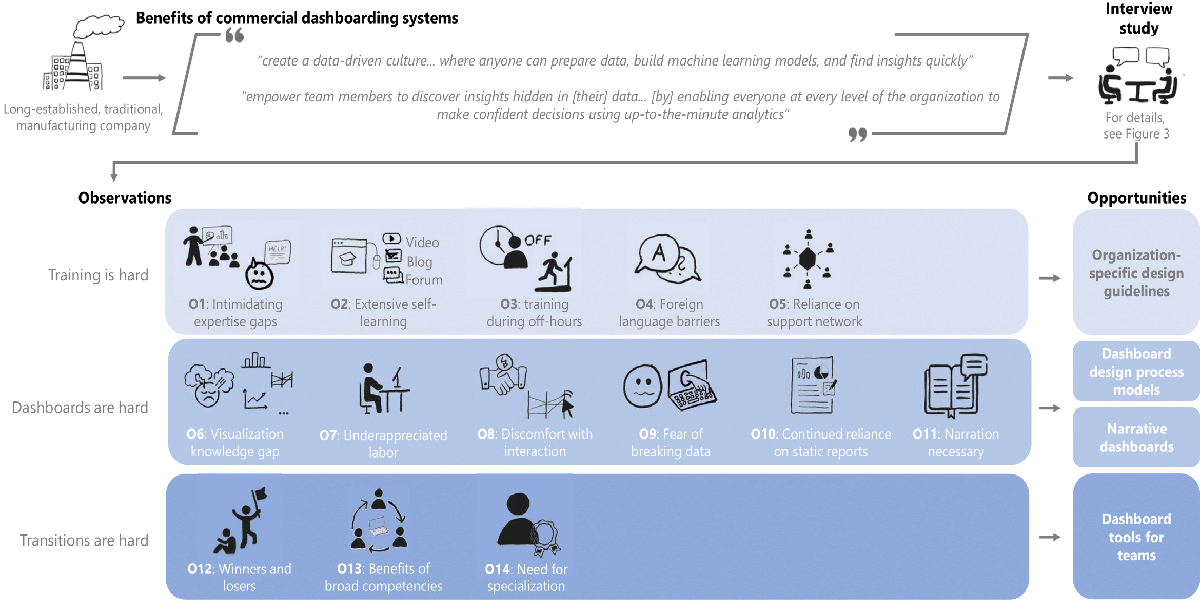
Abstract
Many long-established, traditional manufacturing businesses are becoming more digital and data-driven to improve their production. These companies are embracing visual analytics in these transitions through their adoption of commercial dashboarding systems. Although a number of studies have looked at the technical challenges of adopting these systems, very few have focused on the socio-technical issues that arise. In this paper, we report on the results of an interview study with 17 participants working in a range of roles at a long-established, traditional manufacturing company as they adopted Microsoft Power BI. The results highlight a number of socio-technical challenges the employees faced, including difficulties in training, using and creating dashboards, and transitioning to a modern digital company. Based on these results, we propose a number of opportunities for both companies and visualization researchers to improve these difficult transitions, as well as opportunities for rethinking how we design dashboarding systems for real-world use.
Citation
Conny
Walchshofer,
Vaishali
Dhanoa,
Marc
Streit,
Miriah Meyer
Transitioning to a Commercial Dashboarding System: Socio-technical Observations and Opportunities
IEEE Transactions on Visualization and Computer Graphics,
30(1):
381-391, doi:10.1109/TVCG.2023.3326525, 2024.
BibTeX
@article{,
title = {Transitioning to a Commercial Dashboarding System: Socio-technical Observations and Opportunities},
author = {Conny Walchshofer and Vaishali Dhanoa and Marc Streit and Miriah Meyer},
journal = {IEEE Transactions on Visualization and Computer Graphics},
publisher = {IEEE Computer Society},
doi = {10.1109/TVCG.2023.3326525},
volume = {30},
number = {1},
pages = {381-391},
year = {2024}
}
Acknowledgements
We would like to thank Jimmy Moore for the input-rich discussions at the beginning of the project, our interviewees for their time and candid participation in the study, and our reviewers for their feedback. This work was supported in part by funding from the Wallenberg AI, Autonomous Systems and Software Program (WASP) funded by the Knut and Alice Wallenberg Foundation, the Austrian Science Fund (FWF DFH 23–N), and the Austrian Research Promotion Agency (FFG 881844). Pro2Future is funded within the Austrian COMET Program under the auspices of the Austrian Federal Ministry for Climate Action, Environment, Energy, Mobility, Innovation and Technology, the Austrian Federal Ministry for Digital and Economic Affairs, and of the States of Upper Austria and Styria. COMET is managed by the Austrian Research Promotion Agency FFG.



